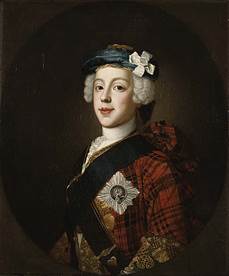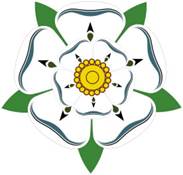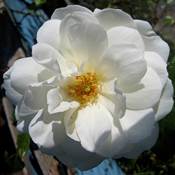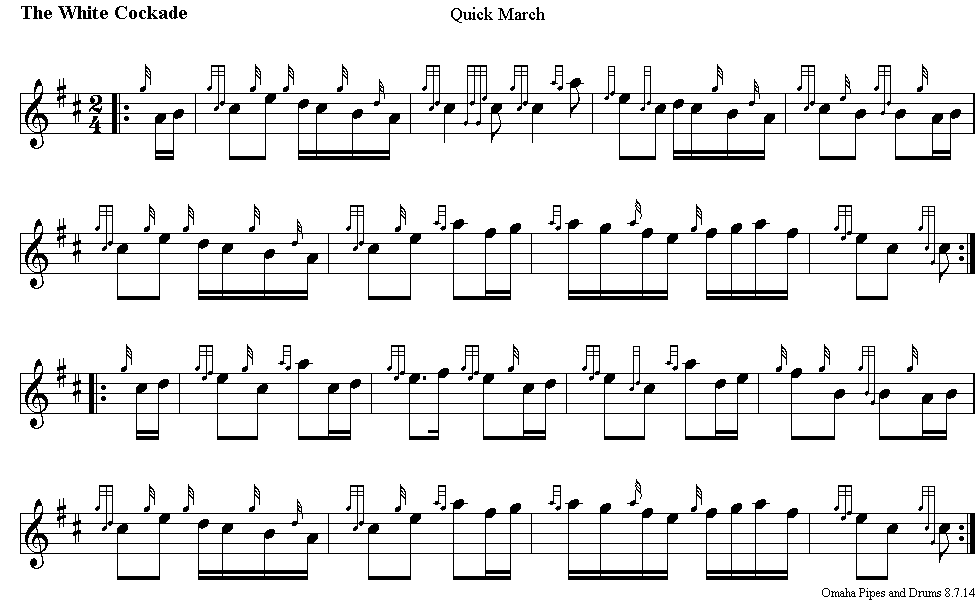
Best viewed in
Internet Explorer
Music (PDF)
Music (BMW)
Back to

Updated
08/26/2014 |

The White Cockade
The White Cockade is a
traditional Scottish tune that celebrates the attempt by “Bonnie Prince
Charlie” to reclaim the throne of Britain for the House of Stuart.
After James II was deposed in 1688 and replaced by his daughter Mary II,
ruling jointly with her husband and first cousin (James's nephew)
William III, the Stuarts lived in exile, occasionally attempting to
regain the throne. The strongholds of Jacobitism were parts of the
Scottish Highlands and North-Eastern lowlands, Ireland, and parts of
Northern England (mostly within the counties of Northumberland and
Lancashire). Significant support also existed in Wales and South-West
England.
The Jacobites believed that
parliamentary interference with monarchical succession was illegal.
Catholics also hoped the Stuarts would end recusancy. In Scotland, the
Jacobite cause became entangled in the last throes of the warrior clan
system.
During the 1745 Jacobite
uprising, the Bonnie Prince is said to have plucked a white rose and
placed it on his bonnet as a symbol of rebellion. Jacobite Troops had
no formal uniform; the white cockade on a blue bonnet became their
emblem.
 |
The white
rose was the symbol of the House of York. Traditionally the
origins of the emblem are said to go back to Edmund of Langley
in the fourteenth century, the first Duke of York and the
founder of the House of York as a cadet branch of the then
ruling House of Plantagenet.
The actual symbolism behind the rose has religious
connotations as it represents the Virgin Mary, who was often
called the Mystical Rose of Heaven. The Yorkist rose is
white in color, because in Christian liturgical symbolism, white
is the symbol of light, typifying innocence and purity, joy and
glory.
"White Rose
Day" is celebrated on 10 June, the anniversary of the birth of
James III and VIII in 1688. |
 |

The famous Scottish
poet Robert Burns recalled the scene with a line of lyrics he set to the
tune in 1790:
Lyrics
|
Burns Original
Chorus
O, he's a ranting, roving lad!
He is a brisk an' a bonie lad!
Betide what may, I will be wed,
And follow the boy wi' the White Cockade!
My love was born in Aberdeen,
The boniest lad that e'er was seen;
But now he makes our hearts fu' sad -
He takes the field wi' his White Cockade.
Chorus
I'll sell my rock, my reel, my tow,
My guid gray mare and hawkit cow,
To buy mysel a tartan plaid,
To follow the boy wi' the White Cockade.
|
Standard English Translation
Chorus
O, he is a ranting, roving lad!
He is a brisk and a handsome lad!
Come what may, I will be wed,
And follow the boy with the White Cockade!
My love was born in Aberdeen,
The handsomest lad that ever was seen;
But now he makes our hearts full sad -
He takes the field with his White Cockade.
Chorus
I will sell my distaff, my spinning reel, my flax,
My good gray mare and white-faced cow,
To buy myself a tartan plaid,
To follow the boy with the White Cockade. |
|





